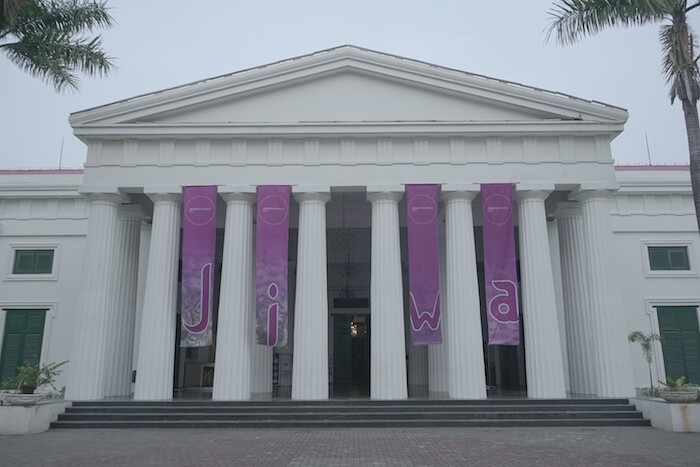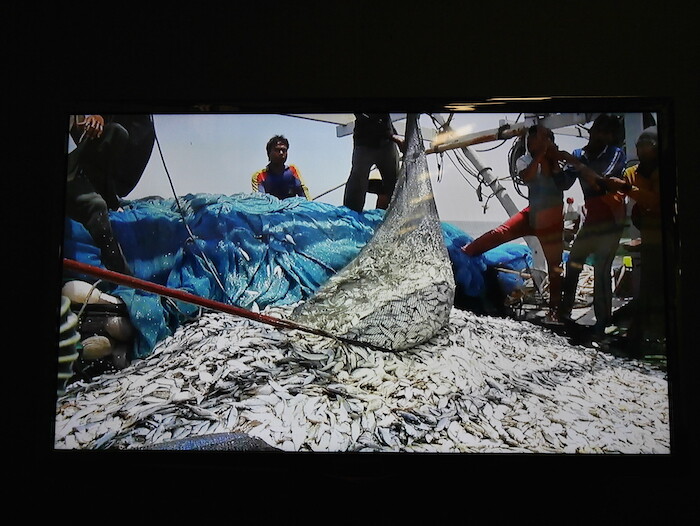Categories
Subjects
Authors
Artists
Venues
Locations
Calendar
Filter
Done
November 13, 2017 – Review
17th Jakarta Biennale, “Jiwa”
Melissa Gronlund

The 2017 edition of the Jakarta Biennale proposes a soulful understanding of Indonesia, in which “jiwa” reigns. Jiwa is a pre-Islamic, polytheistic, and specifically Indonesian concept that signifies a way of living in which thinking and feeling go hand-in-hand, and of living in harmony with nature and with one another. (For clarification on the idea, I was told that Indonesia’s neighbor Singapore has no jiwa: sorry, Singapore!) It might be helpful also to think of what jiwa is defined against: a variety of forces that have threatened to claim Indonesia, such as Dutch colonialism, Suharto, American-style capitalism, Islamification, and nationalism.
Jiwa thus activates a particular social and political background, which the exhibition grounds further with a historical focus. The show’s artistic director, Melati Suryodarmo, and her team Annissa Gultom, Hendro Wiyanto, Philippe Pirotte, and Vít Havránek, returned to the Indonesian generation that emerged in the mid-1970s. This was the moment when a group of artists in Jakarta rebelled against the academicism of the Second Jakarta Painting Biennale of 1974 and instead linked themselves with anti-Suharto activism. For Eceng Gondok Berbungan Emas (Water Hyacinth with a Golden Rose, 1979/2017), Siti Adiyati, for instance, made an artificial pond in the wide gulley between …
November 18, 2015 – Review
16th Jakarta Biennale, "Neither Forward nor Back: Acting in the Present
Vivian Ziherl

Chaotic and dense, lively, spirited, and in some senses logistically miraculous, the 2015 Jakarta Biennale takes its cue squarely from the political and geographic condition of Indonesia as an “archipelago state”—a nation comprised of a loose and idiosyncratic cluster of 922 inhabited islands. The exhibition trains its focus simultaneously on the political condition of the multi-ethnic post-colonial nation within the tides of globalization, as well as on the material and ecological state of being of its people, islands, and waters themselves.
This condition of forging together the contradictory forms of the archipelago and the nation-state is one that is linked in Indonesia to Third Worldist histories, which trace the efforts of decolonizing nations to develop an alternative to the expansionary European blocs of the Cold War. Following independence from the Dutch in 1947, Indonesian president Sukarno led a process of nation-building that sought to imagine a country united in anti-colonial defiance and strengthened through its internal differences. The 1955 Afro-Asian conference in Bandung marked a high point of this optimistic era: a moment in which Indonesia could imagine itself as the world center of an alternative planetary politics, and a decade before the Suharto-led military coup and the loss of between …